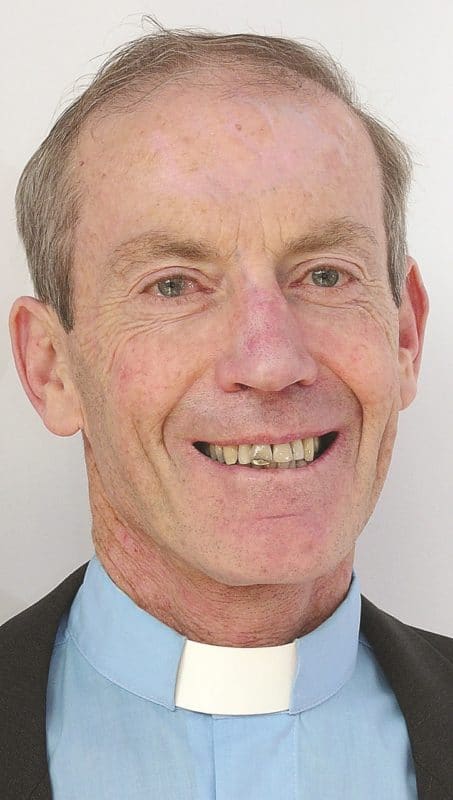by Msgr BRENDAN DALY
Following on from the resignation of Bishop Charles Drennan, NZ Catholic asked Msgr Brendan Daly, judicial vicar of the Tribunal of the Catholic Church in New Zealand, to explain more about the new process in the Catholic Church for dealing with complaints against bishops. Msgr Daly’s response follows:
Pope Francis published his motu proprio “You are the Light of the World” (Vos Estis Lux Mundi) on May 10, 2019. A “motu proprio” is a legislative document Popes use, meaning “at my own initiative”. This motu proprio introduces mandatory reporting within the Church for cases of sexual abuse. As well, Vos Estis Lux Mundi outlines the procedures to deal with complaints of sexual abuse by bishops, or failures of bishops and religious leaders to deal properly with complaints in either canon or civil law.

Sexual abuse is defined as an action by a cleric or religious against the sixth commandment and includes: forcing someone by violence, threat or through abuse of authority to perform or submit to sexual acts; sexual activity with a vulnerable person or with someone under 18 years of age; and the use of child pornography.
It is also a crime for religious leaders such as bishops and superiors of religious institutes to fail to observe law concerning reporting sexual abuse, or failing to cooperate with Church or civil investigations.
Furthermore, it is made clear that it was a crime (canon 1389, 1983 Code of Canon Law) for bishops, or any religious leader, to fail to deal with complaints properly in the past, or who did not observe canon or civil laws concerning sexual abuse.
Cardinal John Dew (the Metropolitan for New Zealand, and Archbishop of Wellington) and the National Office for Professional Standards receive any complaint against a bishop or religious leader.
If a complaint of sexual abuse or the failure to act involves the cardinal, then the complaint must be referred to the National Office for Professional Standards and the senior suffragan bishop in New Zealand, who is Bishop Patrick Dunn.
If Cardinal Dew, having received a complaint, believes he may have a conflict of interest because he feels too close to the accused bishop, he must inform the Congregation for the Doctrine of the Faith at the Vatican.
If Cardinal Dew decides the complaint is manifestly unfounded, because, for example, the accused was not a bishop at the time he is alleged not to have dealt properly with a complaint, then he must inform the complainant and the papal nuncio of this decision.
If Cardinal Dew thinks, however, that the complaint has a semblance of truth about it, he must request advice from the Congregation for the Doctrine of the Faith on how to proceed with the investigation.
Cardinal Dew would then direct any investigation using the services of the National Office for Professional Standards, and together they may appoint a delegate(s) to help carry out the investigation.
The delegate(s) may come from a list of suitable people prepared by the New Zealand Catholic Bishops’ Conference.
Cardinal Dew provides a report to the Congregation for the Doctrine of the Faith on the progress of the investigation every month and he will ensure the whole investigation is completed within 90 days. At the conclusion of the investigation, Cardinal Dew will then write his opinion about the complaint (called a votum) and the evidence collected.
The whole file, together with the votum, is then sent to the Congregation for the Doctrine of the Faith as soon as possible. This Congregation is responsible for dealing with all complaints against bishops concerning crimes that are considered to be “more grave crimes”.
The promotor of justice at the Congregation for the Doctrine of the Faith is Fr Robert Geisinger, SJ. As promotor of justice for a complaint of sexual abuse, he is like the chief prosecutor for the Church. He will write a votum on the file.
The Congregation for the Doctrine of the Faith will then follow its own procedures to deal with the case of a bishop. More evidence could be requested. In conclusion, the Congregation for the Doctrine of the Faith makes a recommendation to Pope Francis, who will make the final decision.

Do not call him Cardinal Dew. His name is John according to his directive.
That is a very clear explanation. But I am more confused, by the terms of the motu proprio why was Charles Drennan removed, I mean why did he resign? I can only assume his ‘resignation’ was posited under abuse of authority but is that the same thing as ‘inappropriate relationship’? Perhaps the opportunity for change, which is the most important thing which no one should be afraid of, just presented itself.
Maria: It certainly wasn’t just an opportunity for change! he broke his vow at least twice and once with a much younger woman. he used his authority or role to corner her. He breached his code of ethics badly.
Bryan: perhaps we are in the realm of hearsay, I wouldn’t know. Regardless, and particularly in view of the current situation in the world wide Church, Charles Drennan has certainly drawn the short straw by being cornered into resignation. Compare that outcome with other prelates who have been outed, with arguably more significant moral issues, who have found themselves, as a result, happily elevated into the Vatican service. Does this mean NZ has a remarkably high standard? No.
I am not shocked at what you state, just disappointed. As things go with the laws of nature, I would have been more surprised if it had been only once with a much older woman, so I guess normality counts against you these days. A public confession and ‘rending of garments’ in the pulpit would have done the job. I am so sorry for him, I really am, and I have to say I was no fan of his either.
I think there needs to be some education on the 3 C words:
Celibacy – can’t marry.
Continence – no sex
Chastity – supernatural virtue related to temperance self-restraint and opposed to lust.
So, you can be celibate but both incontinent and unchaste like Theodore McCarrick or Marciel Marcial. You can be continent, celibate but unchaste while in the rectory watching pr0n on the big-screen or downtown at the bar dressed in mufti.
As to the weak logic that unchaste clerics somehow prove we must repeal clerical celibacy, please recall that marriage requires chastity-temperance also.
What woman wants to be married to an unchaste man? A man who lusts and doesn’t seek grace. What daughter wants an unchaste father? What does an unchaste man or woman model to their children?
WHat could be the worst when a priest used a woman known to him 30 years ago for his weaknesses .